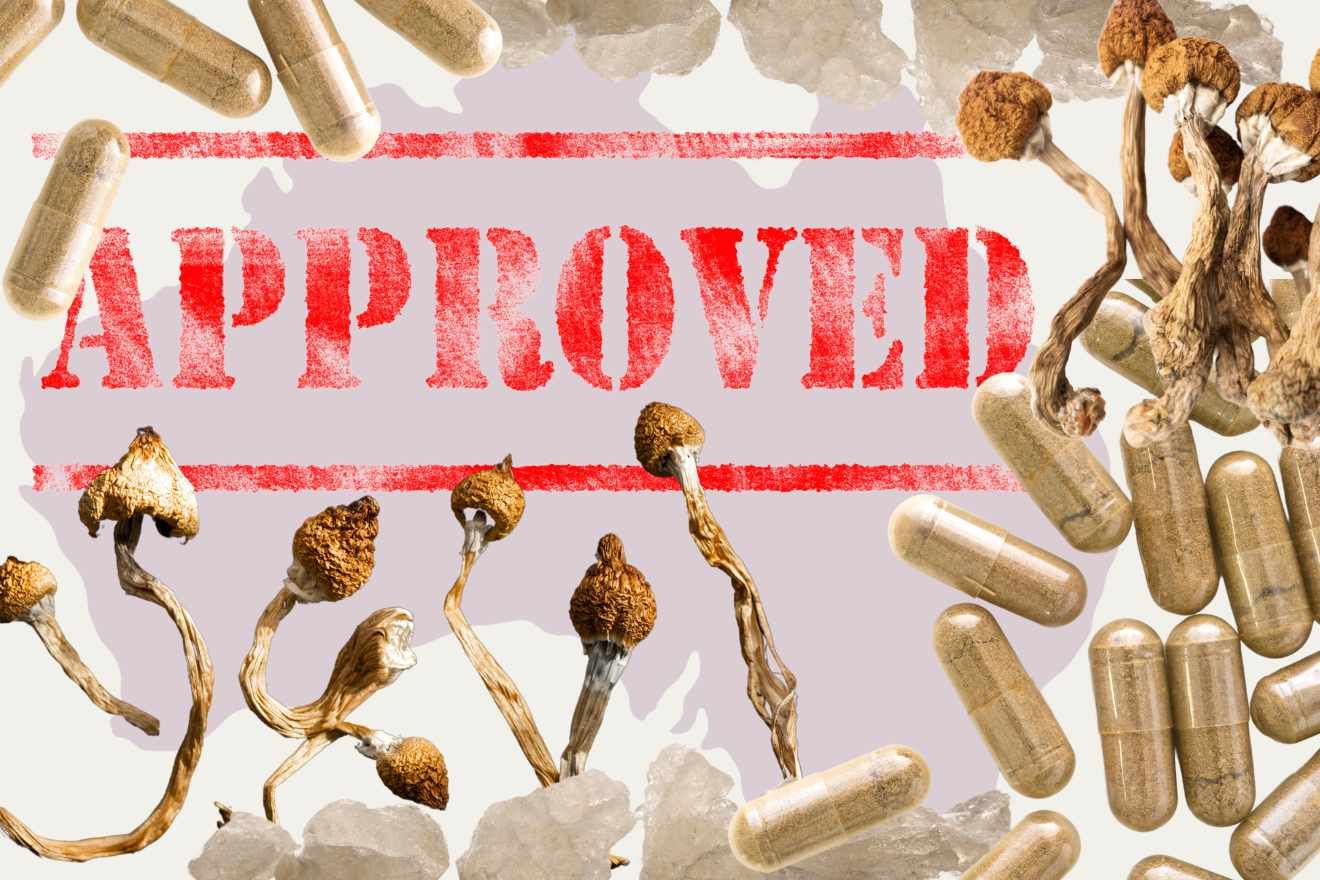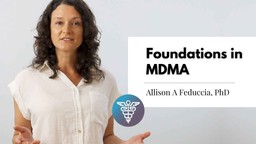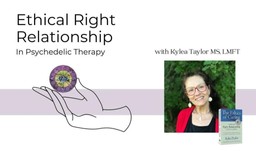Since July 1, 2023, physicians are now allowed to prescribe psychedelic medicines in Australia. These are medicines that contain MDMA and psilocybin for the treatment of certain medical and mental health conditions.
This came into effect as a result of Australia’s new Therapeutic Goods Administration (TGA) release in February 2023. The release announced they were the first country to formally recognize these psychedelic substances as therapeutic drugs.
Read on to find out how this came about, what the current Australian research community perceives of this, what it means for doctors and patients, and what access looks like in Australia.
Background: TGA Announcement
On February 3, 2023, Australia’s Therapeutic Goods Administration (TGA) published a news release. The release was titled “Change to the classification of psilocybin and MDMA to enable prescribing by authorised psychiatrists.”
It stated that specifically-authorized psychiatrists would be permitted to prescribe psychedelic medicines in Australia containing psilocybin for treatment-resistant depression (TRD) and MDMA for post-traumatic stress disorder (PTSD) starting on July 1, 2023.
Due to the current evidence that supports the potential benefits of these substances, PTSD and TRD were the only two conditions that the classification change applies to.
The TGA supports their decision, stating a “current lack of options for patients with specific treatment-resistant mental illnesses”.
Only psychiatrists who have met specific qualifications, expertise and requirements are allowed to prescribe these substances to their patients. Continue reading to learn more about these requirements.
Check out our course: Understanding Psilocybin: Effects, Neurobiology, and Therapeutic Approaches
Perspectives from the Australian Research Community
The TGA news release shared that their decision was based on:
- “applications made to the TGA to reclassify the substances in the Poisons Standard,
- extensive public consultation,
- a report from an expert panel, and
- advice received from the Advisory Committee on Medicines Scheduling”.
The Australian research community has expressed mixed reactions to the announcement. Shortly after the news release, Paul Liknaitzky published an article in The Conversation about the responses from his and his peers. Dr. Liknaitzky is the Head of Clinical Psychedelic Research at Monash University in Melbourne, Australia.
He heads the first clinical psychedelic lab in Australia. He is leading the research for developing, exploring, and testing the safety and effectiveness of psychedelic-assisted therapies (PAT) and training therapists.
Furthermore, he shares that he optimistic about the change in classification along with numerous other experts, clinicians and researchers who he has spoken to.
Dr. Liknaitzky notes the research community is excited about the following:
- Drug policy progress
- Potential access for more people in need
- The prospect of being able to offer patients more suitable and tailored treatment without the constraints imposed by clinical trials and rigid protocols
However, there are also concerns about the following:
- Inadequate or insufficient evidence
- Premature move toward clinical service
- A flood of incompetent or poorly equipped clinicians into the space
- Minimal or ill-informed patient outcomes and oversight of training and treatment
- Lack of affordability of treatment for most
Dr. Liknaitzky shares that the current pool of professionals working in the space is particularly concerned with the knowledge gap of future practitioners, such as therapists, decision-makers and prescribers. “[They] probably don’t know that they don’t know about some of the essential elements of safe and effective psychedelic therapy,” wrote Dr. Liknaitzky.
Check out our course: Foundations in MDMA Safety, Therapeutic Applications & Research
What Access Means for Doctors and Patients
There are multiple mandatory steps needed before a patient can be prescribed a medicine containing a psychedelic substance.
Here are the requirements that need to be met in prescribing and accessing MDMA or psilocybin as psychedelic medicines in Australia.
Requirement: Fellowship with the Royal Australian and New Zealand College of Psychiatrists (RANZCP)
Psychiatrists who intend to prescribe MDMA or psilocybin first must have completed a fellowship with RANZCP.
In June 2023, RANZCP released a clinical memorandum “Therapeutic Use of Psychedelic Substances”. The purpose of the memo was to inform psychiatrists about the potential therapeutic use of psychedelic substances to support the treatment of mental illness.
The 7-page memo provides the definition and scope of psychedelic-assisted therapy, evidence and current research, risks and side effects, regulations, and considerations for the use of psychedelic therapy in treatment.
RANZCP highlighted the need for careful consideration when choosing appropriate patients for psychedelic therapy. They write, “Patients should have [the] capacity to understand the risks and benefits of the treatment in the context of their disorder, duration of current episode, previous treatment history, and ability to provide valid consent. In addition to these diagnostic considerations, other considerations include medical, psychological and/or social factors.”
RANZCP emphasizes that although initial evidence is showing that psychedelic therapies may have beneficial effects on various mental illnesses, “[f]urther research is required to assess the efficacy and safety of psychedelic therapies to inform future potential use in psychiatric practice”.
Requirement: Authorized Prescriber Approval
Psychiatrists who intend to prescribe MDMA or psilocybin must also be an authorized prescriber. This requires the individual to submit a protocol to the human research ethics committee (HREC) for approval.
This is referred to as the standard pathway, which means the psychiatrist cannot use the established history of use pathway for MDMA or psilocybin.
Only after the ethics committee approves the protocol, the psychiatrist can then begin to screen patients for psychedelic therapy.
Learn more about the Ethical Right Relationship in Psychedelic Therapy (Ethics 101)
Requirement: Trained Facilitators For Psychedelic-Assisted Therapy
Psychedelic-assisted therapy must be conducted with a trained facilitator.
In May 2023, RANZCP released a clinical memorandum: Therapeutic use of MDMA for PTSD and psilocybin for treatment-resistant depression. It specifies that practitioners who plan to treat clients or patients with psychedelic-assisted therapy must be appropriately trained with prior experience or have been supervised by someone with that experience.
Specifically, RANZCP notes, “This must include both knowledge of the medical effects of MDMA and psilocybin, encompassing adverse effects, potential interactions with other medications, as well as training in practical aspects of delivering PAT. Specific training in psychedelic psychotherapy must recognize the importance of maintaining professional boundaries, given that patients will be in close physical contact with the therapist during the treatment session.”
Check out our free course: Clinicians Exploring Psychedelic Therapy
Cost-Effectiveness Considerations
Dr. Liknaitzky alluded to the concerns about the affordability of these treatments in his article in The Conversation. In a recent interview with The Microdose, a free newsletter from the U.C. Berkeley Center for the Science of Psychedelics, he expanded on his concerns about the cost-effectiveness of psychedelic treatments.
He explains that approval of these medications isn’t actually the pivotal moment in psychedelic drug treatment access. Instead, the most important part of the process is determining what reimbursement will look like.
Dr. Liknaitzky is worried that unless cost-effectiveness is addressed, these treatments may only be accessed by those who can financially afford them.
“Cost effectiveness is going to determine whether this actually has an impact at a community level, at a population level. If it is not cost effective in the terms that insurers and Medicare can see it, then it’s going to remain a cottage industry for generally well-off people. And that’s not what we’re after,” explains Dr. Liknaitzky.
Although Dr. Liknaitzky is apprehensive about the approval of psychedelics in medical settings, he also believes there is an incredible opportunity ahead for Australia. Specifically, it will be prudent for those working in the field to gather appropriate data for a cost-effectiveness analysis for these substances.
This includes having an open and transparent approach to monitoring their activities and being cautious and adaptable during the development of treatment models and training methods as processes improve and more robust evidence is garnered.
Dr. Liknaitzky concludes with the following note to practitioners in his article in The Conversation:
“To those planning to work in this space in Australia, I urge you to start or continue climbing the steep learning curve with curiosity, to organize reputable training, support, and resources from those already doing the work, and to establish appropriate systems of governance, oversight, and transparency.
There’s so much potential here, plenty at stake, and work to be done.”
Follow your Curiosity
Sign up to receive our free psychedelic courses, 45 page eBook, and special offers delivered to your inbox.References
Commonwealth of Australia. The Department of Health and Aged Care. (2023, February 13). MDMA and psilocybin. Therapeutic Goods Administration (TGA). Retrieved July 27, 2023, from https://www.tga.gov.au/products/unapproved-therapeutic-goods/mdma-and-psilocybin
Commonwealth of Australia. The Department of Health and Aged Care. (2023, February 3). Change to classification of psilocybin and MDMA to enable prescribing by authorised psychiatrists. Therapeutic Goods Administration (TGA). Retrieved July 27, 2023, from https://www.tga.gov.au/news/media-releases/change-classification-psilocybin-and-mdma-enable-prescribing-authorised-psychiatrists
Liknaitzky, P. (2023, February 7). The TGA has approved certain psychedelic treatments: the response from experts is mixed. The Conversation. Retrieved July 27, 2023, from https://theconversation.com/the-tga-has-approved-certain-psychedelic-treatments-the-response-from-experts-is-mixed-199290
Royal Australian and New Zealand College of Psychiatrists (RANZCP). (2023a). Clinical Memorandum: Therapeutic use of MDMA for PTSD and psilocybin for treatment resistant depression. https://www.ranzcp.org/getmedia/0cf57ea2-0bd7-4883-9155-d2ba1958df86/cm-therapeutic-use-of-mdma-for-ptsd-and-psilocybin-for-treatment-resistant-depression.pdf
Royal Australian and New Zealand College of Psychiatrists (RANZCP). (2023b, June). Clinical Memorandum: Therapeutic use of psychedelic substances. Royal Australian and New Zealand College of Psychiatrists (RANZCP). https://www.ranzcp.org/getmedia/4cfd1fea-171c-43fc-8dab-7b476b3f706c/cm-therapeutic-use-of-psychedelics.pdf









